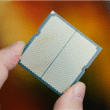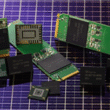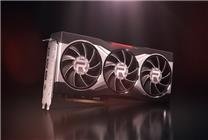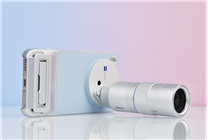AMD Clarifies Support for RDNA 1 and RDNA 2 GPUs Following User Concerns
- AMD initially excluded RDNA 1 and RDNA 2 GPUs from future feature support.
- Public response prompted AMD to reaffirm commitment to ongoing optimization for these architectures.
- USB-C functionality for RX 7900 series remains unchanged, rectifying previous miscommunication.
On November 2, AMD faced backlash from users after a report indicated the exclusion of RDNA 1 (RX 5000 series) and RDNA 2 (RX 6000 series) architecture GPUs from future feature support and game optimizations in their driver version 25.10.2. This announcement suggested a shift towards “maintenance mode,” which left many users concerned about the future performance of their graphics cards.
In response to the outcry, AMD swiftly reassured the community that both RDNA 1 and RDNA 2 GPUs will continue to receive comprehensive game optimization and support for new features. The company stated, “The maintenance mode branch will continue to provide support based on market demand in terms of new features, bug fixes, and game optimizations.” This clarification aims to restore confidence among users who rely on these graphics architectures for their gaming experiences.
Despite the ambiguous nature of the term “market demand,” AMD emphasized that RDNA 1 and RDNA 2 GPUs will maintain Day-0 game support. This includes compatibility with handheld platforms like the ROG Ally, reinforcing the importance of these architectures in the gaming ecosystem.
The RDNA 2 architecture, in particular, still holds a significant share in the market, being utilized not only in the RX 6000 series but also in leading game consoles such as the Steam Deck, PlayStation 5, and Xbox Series X/S. The continued support for these GPUs is undeniably a crucial aspect for gamers who aim to enhance their gaming performance and experience.
Additionally, AMD addressed another concern regarding the USB Type-C functionality of the RX 7900 series graphics cards. The company confirmed that the previous report about its removal was an error in the driver release notes and that the USB-C feature has remained unchanged. This correction further underscores AMD’s commitment to transparency and accurate communication with its user base.
In conclusion, AMD’s proactive measures to clarify the status of RDNA 1 and RDNA 2 architecture GPUs and reinforce the unchanged USB-C functionality reflect the company’s ongoing commitment to customer satisfaction and support. This reassurance is critical for players relying on these technologies to power their gaming experiences.








